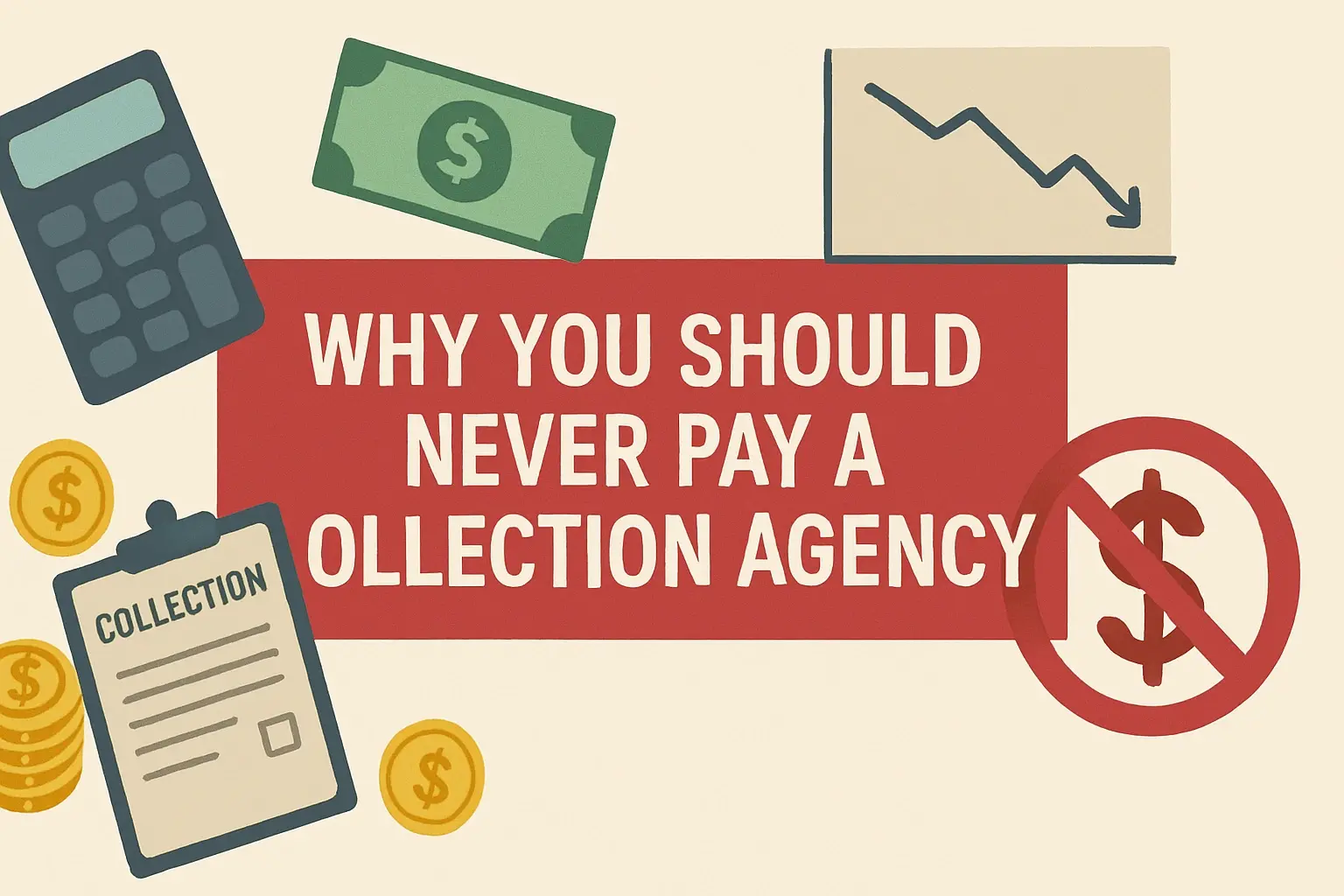-
Posted on: 24 Dec 2022

-
Your credit report is a comprehensive record of your credit history, detailing your borrowing and repayment behaviors. It's crucial for various financial decisions, from securing loans and mortgages to renting an apartment or even getting a job. Accessing your credit reports regularly allows you to monitor your credit health, identify any errors, and take proactive steps to improve your credit score. At Credit Repair Ease, we understand the importance of credit report access, and this guide will walk you through the process of obtaining your credit reports online.
Understanding Your Credit Reports
Before diving into the "how-to," let's clarify what a credit report is and why it matters.
A credit report contains information about your:
- Personal Information: Your name, address, Social Security number, and date of birth.
- Credit Accounts: Details about your credit cards, loans, and other lines of credit, including account numbers, credit limits, balances, and payment history.
- Public Records: Information from court records, such as bankruptcies, liens, and judgments.
- Inquiries: A record of entities that have accessed your credit report (soft and hard inquiries).
Your credit report is used by lenders, landlords, employers, and other businesses to assess your creditworthiness and make decisions about whether to extend credit, rent to you, or hire you. Errors on your credit report can negatively impact your credit score and lead to higher interest rates or denial of credit applications.
The Three Major Credit Bureaus
In the United States, there are three major credit bureaus that compile and maintain credit reports:
- Equifax: Equifax Official Website
- Experian: Experian Official Website
- TransUnion: TransUnion Official Website
Each bureau maintains its own version of your credit report, and the information contained in each report may vary. It's essential to check all three reports to get a complete picture of your credit history.
How to Get Your Free Credit Reports Online
The Fair Credit Reporting Act (FCRA) entitles you to a free copy of your credit report from each of the three major credit bureaus every 12 months. Here's how to obtain them online:
1. AnnualCreditReport.com: The Official Source
The official website for obtaining your free annual credit reports is AnnualCreditReport.com. This website is authorized by the three major credit bureaus and is the safest and most reliable way to access your free reports.
Steps to obtain your reports through AnnualCreditReport.com:
- Visit AnnualCreditReport.com: Go to the website AnnualCreditReport.com.
- Request Your Reports: Click on the "Request your free credit reports" button.
- Fill Out the Form: You'll need to provide your personal information, including your name, address, Social Security number, and date of birth. Ensure the information is accurate to avoid any delays.
- Select Credit Bureaus: You can choose to request reports from one, two, or all three credit bureaus. It's recommended to request all three to get a comprehensive view of your credit history.
- Review and Submit: Double-check the information you've provided and submit your request.
- Answer Security Questions: The website will ask you a series of security questions to verify your identity. These questions are typically based on information in your credit history, such as loan amounts or account numbers.
- Access Your Reports: Once your identity is verified, you'll be able to access your credit reports online. You can view them on the screen, download them as PDF files, or print them out.
2. Directly from Each Credit Bureau's Website
You can also obtain your free credit reports directly from the websites of Equifax, Experian, and TransUnion. While AnnualCreditReport.com is the central source, checking directly can sometimes offer additional features or insights.
Steps to obtain your reports directly:
- Visit the Bureau's Website: Go to the official website of the credit bureau you want to check (Equifax, Experian, or TransUnion).
- Look for "Free Credit Report": Navigate to the section that offers free credit reports. This is typically prominently displayed on the homepage or under the "Credit Reports" section.
- Create an Account (if necessary): You may need to create an account to access your report. This typically involves providing your email address and creating a password.
- Verify Your Identity: Similar to AnnualCreditReport.com, you'll be asked to verify your identity by providing personal information and answering security questions.
- Access Your Report: Once verified, you can access your credit report online.
3. Other Options for Free Credit Reports
While AnnualCreditReport.com provides your legally mandated free reports, there are other situations where you may be entitled to a free credit report. These include:
- If You've Been Denied Credit: If you've been denied credit, insurance, or employment based on information in your credit report, you're entitled to a free copy of the report used in the decision-making process. You must request the report within 60 days of receiving the adverse action notice.
- If You're a Victim of Identity Theft: If you believe you're a victim of identity theft, you're entitled to a free credit report from each of the three major credit bureaus. You'll need to provide documentation, such as a police report or an affidavit of fraud.
- If You're Receiving Public Assistance: In some states, individuals receiving public assistance (like welfare) may be eligible for free credit reports.
What You Need to Provide
Regardless of the method you choose, you'll need to provide the following information to obtain your credit reports:
- Full Name: Your legal first, middle, and last name.
- Current Address: Your current residential address.
- Previous Address (if applicable): If you've lived at your current address for less than two years, you may need to provide your previous address.
- Social Security Number: Your Social Security number is used to verify your identity.
- Date of Birth: Your date of birth is also used for verification purposes.
- Security Questions: Be prepared to answer security questions based on your credit history.
Reviewing Your Credit Reports
Once you've obtained your credit reports, it's crucial to review them carefully for errors, inaccuracies, and signs of identity theft. Here's what to look for:
- Incorrect Personal Information: Check for misspellings of your name, incorrect addresses, or inaccurate Social Security number.
- Unauthorized Accounts: Look for accounts that you don't recognize or that you never opened.
- Incorrect Account Information: Verify that the account balances, credit limits, and payment history are accurate.
- Duplicate Accounts: Ensure that there are no duplicate listings of the same account.
- Incorrect Public Records: Review any public record information, such as bankruptcies, liens, or judgments, to ensure accuracy.
- Fraudulent Activity: Look for any signs of fraudulent activity, such as unauthorized charges or unfamiliar addresses.
Disputing Errors on Your Credit Reports
If you find any errors or inaccuracies on your credit reports, it's important to dispute them with the credit bureaus. You can dispute errors online, by mail, or by phone. However, written disputes are generally recommended as they provide a documented record of your dispute.
Steps to dispute errors:
- Gather Documentation: Collect any documents that support your dispute, such as account statements, payment records, or legal documents.
- Write a Dispute Letter: Write a formal letter to the credit bureau outlining the errors you've found and providing supporting documentation. Be clear and concise, and include your name, address, Social Security number, and account number (if applicable).
- Send the Dispute Letter: Send the dispute letter to the credit bureau by certified mail with return receipt requested. This will provide you with proof that the bureau received your letter.
- Follow Up: The credit bureau has 30 days to investigate your dispute. If they determine that the information is inaccurate, they're required to correct it. If they disagree with your dispute, they'll provide you with an explanation.
Why Regular Credit Monitoring is Important
Accessing your credit reports annually is a good start, but consider more frequent monitoring for optimal credit health. Regular credit monitoring can help you:
- Detect Identity Theft Early: Receive alerts about suspicious activity, such as new accounts opened in your name or changes to your personal information.
- Prevent Fraud: Identify and address fraudulent activity before it causes significant damage to your credit score.
- Improve Your Credit Score: Monitor your progress as you work to improve your credit score and identify areas where you can make improvements.
- Negotiate Better Interest Rates: A good credit score can help you qualify for lower interest rates on loans and credit cards.
There are several options for credit monitoring, including free services offered by some credit card companies and paid subscription services offered by the credit bureaus and other companies. At Credit Repair Ease, we can help you determine the best credit monitoring strategy for your individual needs and budget.
The Role of Credit Repair Ease
Navigating the world of credit reports and credit scores can be complex and overwhelming. That's where Credit Repair Ease comes in. We offer a range of services to help you improve your credit health, including:
- Credit Report Analysis: We'll analyze your credit reports to identify errors, inaccuracies, and areas for improvement.
- Dispute Assistance: We'll help you prepare and send dispute letters to the credit bureaus.
- Credit Score Improvement Strategies: We'll provide you with personalized strategies to improve your credit score.
- Debt Management Advice: We'll offer guidance on managing your debt and making informed financial decisions.
Our goal is to empower you to take control of your credit and achieve your financial goals. Contact Credit Repair Ease today for a free consultation and learn how we can help you improve your credit health.











